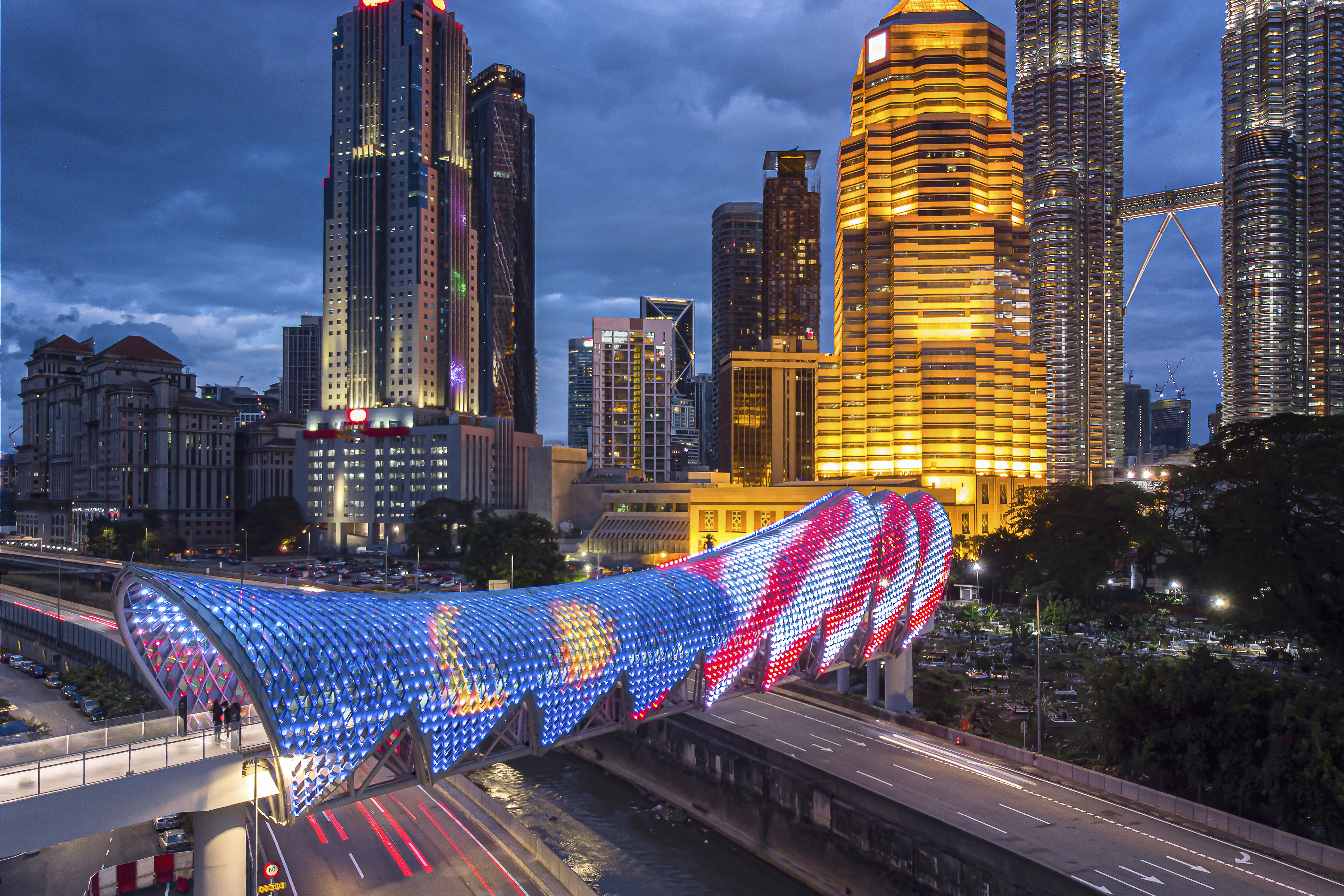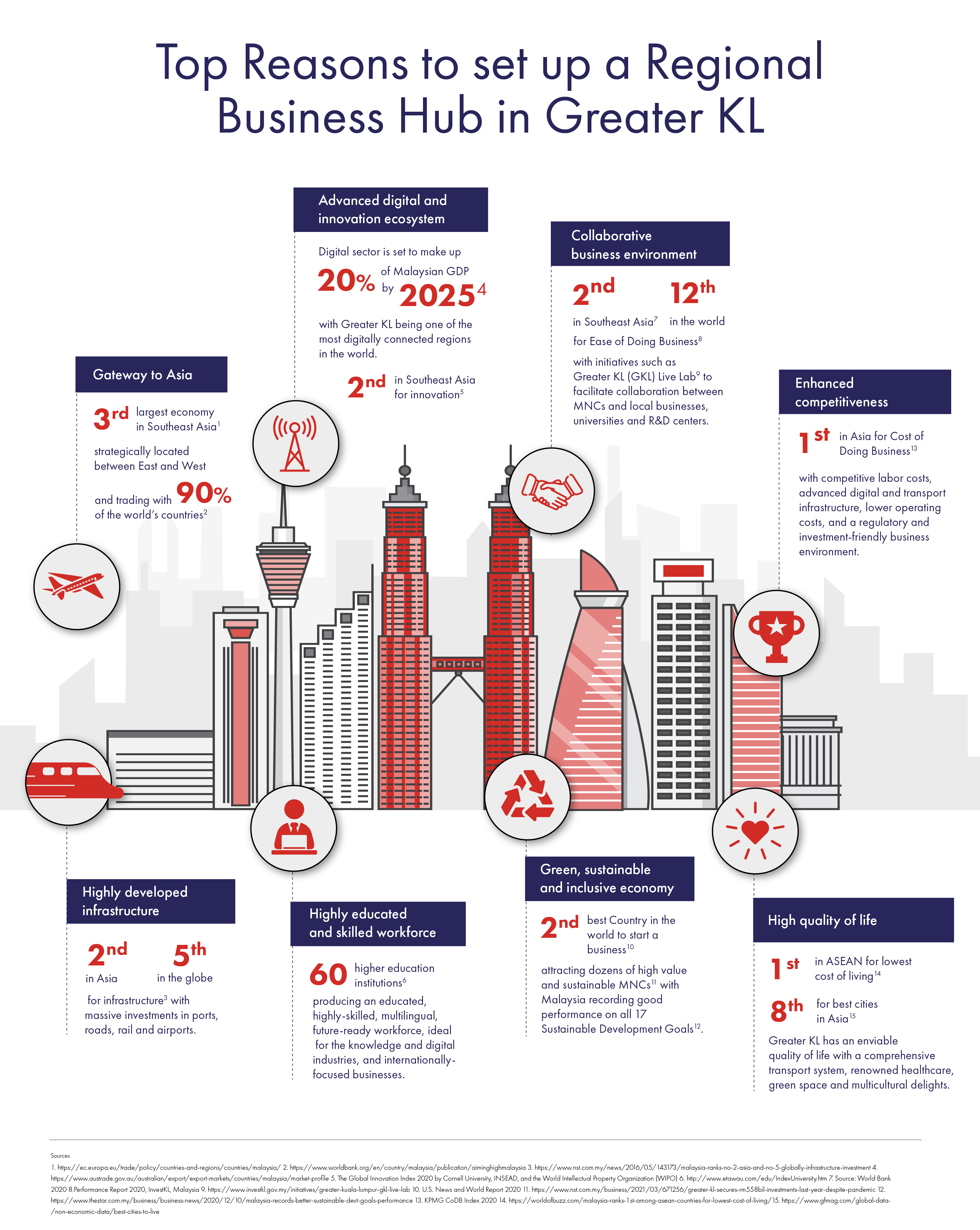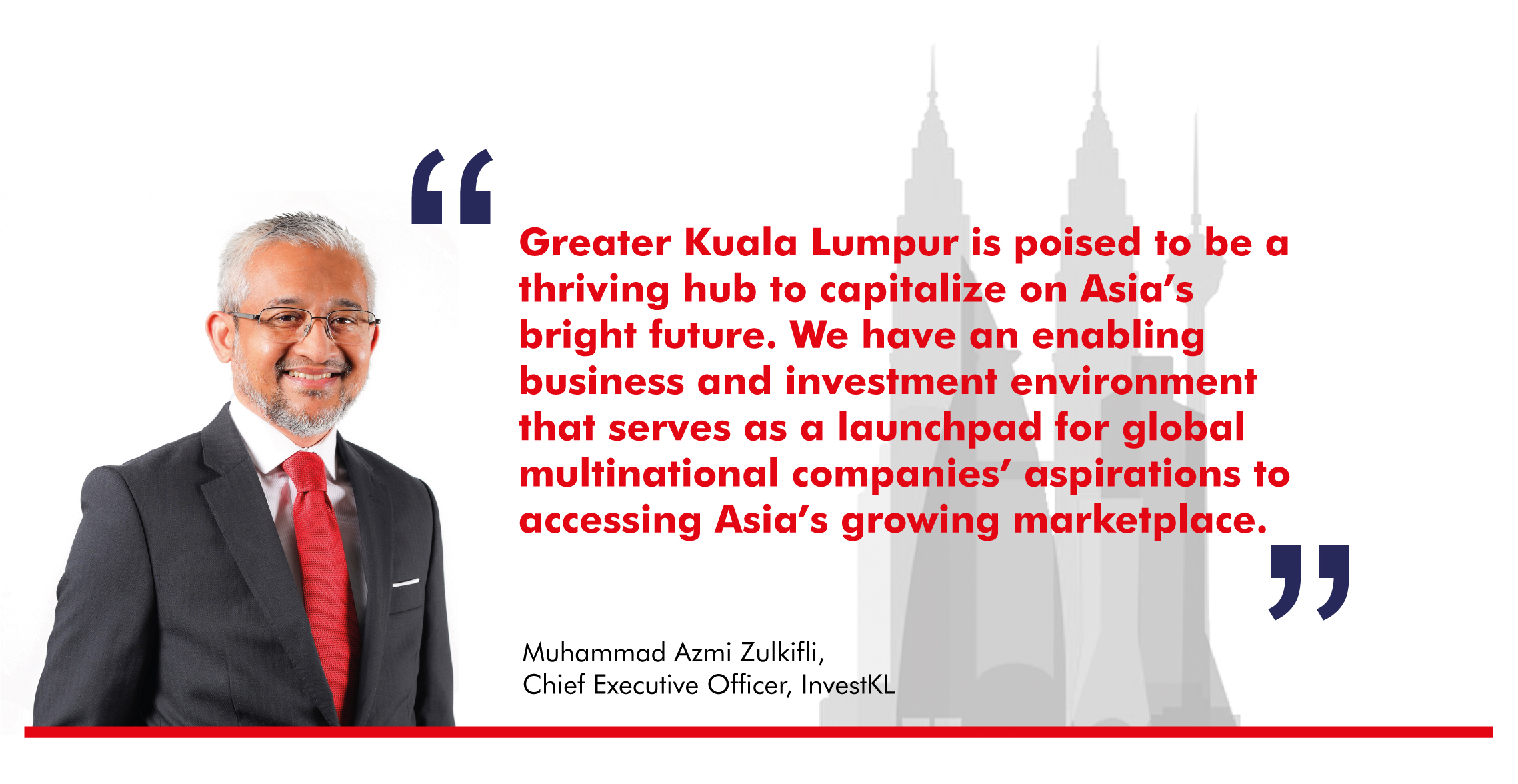
CONTENT FROM INVESTKL
Take a cool evening stroll through downtown Kuala Lumpur (KL) to get a sense of just how far this amazing city has come.
Having transformed from a tiny, thatched-roof tin-mining town in the mid-1800’s to a well-connected high-tech city today, it uniquely manages to exude exotic multi-ethnic charm while featuring the amenities, infrastructure and conveniences of a world class contemporary urban center.
Here you will find internationally renowned restaurants rubbing shoulders with hawker centers, and quaint old shop houses and historic colonial buildings provide a foil to the shimmering towers and modern condominiums.
And giant gleaming shopping malls selling international brands and famous local ones, like Jimmy Choo, sit comfortably alongside KLs many markets and street vendors selling anything you can imagine, from all over the globe.
It is no accident that the potpourri of products, cultures, and cuisines that you see on your walk have ended up in Kuala Lumpur.
It is a direct legacy of Malaysia’s centuries-old place as one of the world’s foremost trading hubs.
Strategically located between east and west, Malaysia has attracted traders and businesses from as far away as Arabia and China since at least 200 BCE.
Today of course, the dhows, junks and go-downs have been replaced with container ships, high-tech transshipment hubs, and super-efficient container terminals.
And the ancient markets find their modern-day business equivalence in the Global Business Centers, Technology Parks and Digital Free Trade Zones that have sprung up in the city.

Partners in Progress
Arguably, Malaysia’s on-going development has been the result of four economic forces: its ready access to natural resources, its strategic position as gateway to Asia, a long history of foreign investment, and effective human resource development.
It has historically been able to capitalize on all four, growing 5.4% on average every year since the 1970s.
Such stellar and consistent growth has enabled the country to transform from a largely agrarian and commodity-based economy to a high-tech manufacturing and high-value services economy.
And its vast network of Asian and world trade links continues to serve Malaysia well as the rest of Asia rebounds, with world-leading growth, from the challenges that the COVID-19 pandemic brought to global markets.
Despite COVID-19’s economic wrecking ball, Malaysia is predicted to record 7.8% growth in 2021 – the fastest rate among the ASEAN-5 countries.
Well-established inter-regional trade links are inherently responsible for much of these gains, and will see Malaysia stay the course in lock-step with Asia’s record growth.
If you’re a regional business looking to set up in Malaysia, then most of the world’s markets are within your reach: Malaysia trades with nearly 90% of the globe – far more than most of its neighbors.
This, along with Malaysia’s focus on developing business centers of excellence, business-friendly regulatory and tax frameworks, and digitizing its economy, has propelled the country to be ranked 1st as best country to invest in.
Greater KL alone, for example, attracted a record RM55.8 billion in foreign investment in 2020.
A home for future-forward, Asia-focused MNCs
An investment-friendly and pro-business environment is also attracting MNCs to set up shop in the country.
Greater KL, for instance, facilitated by InvestKL, is seeing about 10 MNCs a year move in, and more than100 have relocated there since 2011, setting up regional HQs, global business services, centers of excellence or shared service centers.
These include many high-value Fortune 500 and Forbes 2000 manufacturing and fast-growing companies such as GE, Allianz, Electrolux, Toshiba, AstraZeneca, Accenture, and Honeywell.
US aerospace and technologies giant Honeywell has been operating in Malaysia for over 30 years and is now expanding its ASEAN regional headquarters that it set up in Greater KL in 2015.
Honeywell was attracted to Malaysia because of the growth opportunities in the country and the rest of the region. Additionally, Honeywell was won over by Malaysia’s focus on education, talent development and pro-business policies.
These policies have resulted in Malaysia being internationally recognized for its competitiveness – ranked 2nd most competitive market in ASEAN, and 3rd most attractive destination for global business services.
Its ability to continue to attract foreign investment will help ensure the longevity of Malaysia’s economic transformation:

Building on Legacies While Aiming High
Malaysia has come a long way since independence in 1957 but its transformation is a work in progress and the best is yet to come.
The World Bank, for instance, projects the country’s likely transition from its current upper-middle-income economy to a high-income economy between 2024 and 2028, opening up even more opportunities for the population and for companies looking to do business in Asia.
Through successive policy initiatives such as the Shared Prosperity Vision 2030, and the National Investment Aspiration (NIA), the government has ensured that Malaysia’s natural, historic, strategic advantage is met with a sustainable and inclusive economic development framework for continued growth and prosperity well into the future.
- Donald Trump Is TIME's 2024 Person of the Year
- Why We Chose Trump as Person of the Year
- Is Intermittent Fasting Good or Bad for You?
- The 100 Must-Read Books of 2024
- The 20 Best Christmas TV Episodes
- Column: If Optimism Feels Ridiculous Now, Try Hope
- The Future of Climate Action Is Trade Policy
- Merle Bombardieri Is Helping People Make the Baby Decision